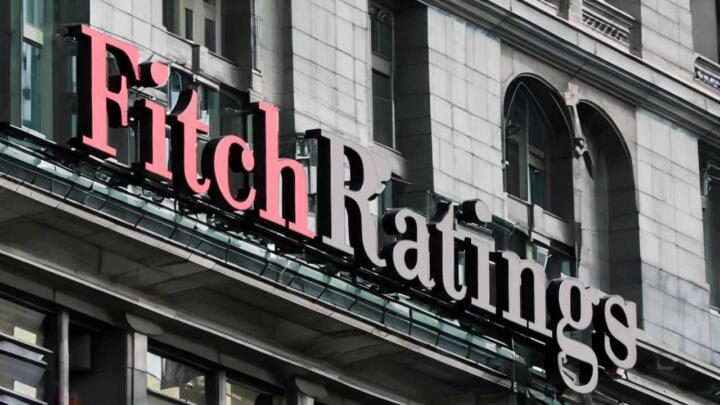Global credit rating agency, Fitch Ratings, has cautioned that Nigeria’s fiscal deficit could widen significantly in the coming fiscal year as the country ramps up spending ahead of the 2027 general elections. The agency, in its latest report on Nigeria’s economic outlook, projected that political expenditure, coupled with persistent revenue shortfalls, could push the deficit beyond earlier government forecasts, potentially heightening fiscal and debt sustainability concerns.
According to Fitch, while Nigeria has made strides in fiscal reforms under President Bola Tinubu’s administration—particularly through subsidy removals, exchange rate unification, and efforts to boost non-oil revenue—these gains may be undermined by pre-election spending pressures. The agency noted that election cycles in Nigeria are typically characterised by elevated government expenditure on social programmes, infrastructure projects, and political mobilisation, often leading to wider deficits.

“Historically, Nigeria’s fiscal outcomes deteriorate during pre-election years due to increased political spending,” Fitch stated. “With inflation still high and social tensions elevated, the government is likely to intensify populist measures ahead of the 2027 polls, which may delay fiscal consolidation efforts.”
The agency projected Nigeria’s fiscal deficit to rise to 6.1 per cent of GDP in 2026, up from 5.2 per cent in 2024, if the government continues on its current spending trajectory without significant revenue mobilisation. It also warned that the country’s growing debt profile could further strain its finances, especially with higher domestic borrowing costs and limited access to foreign capital markets.
Data from the Debt Management Office (DMO) shows that Nigeria’s total public debt reached N152.4 trillion ($99.3 billion) as of mid-2025, with external debt accounting for about 38 per cent of the total. Fitch noted that while the government’s debt-to-GDP ratio remains moderate by international standards, the debt service-to-revenue ratio—one of the highest globally—poses a serious concern for fiscal sustainability.
“Debt affordability is Nigeria’s biggest challenge,” the agency said. “With roughly 90 per cent of federal revenue currently going into debt servicing, any increase in borrowing without a corresponding rise in revenue could threaten fiscal stability.”
Fitch’s analysis further observed that the removal of fuel subsidies and ongoing exchange rate reforms have improved fiscal transparency and reduced some inefficiencies. However, it emphasised that these reforms have not yet translated into sufficient revenue gains or reduced expenditure pressures. The government’s social intervention programmes and subsidies on power and transportation, introduced to cushion citizens from inflationary shocks, have also contributed to spending pressures.
The report also highlighted the risks associated with Nigeria’s rising inflation, which stood at 33.7 per cent in August 2025, according to the National Bureau of Statistics (NBS). Fitch argued that elevated inflation erodes real incomes and weakens consumption, thereby reducing tax revenue while increasing the need for government intervention.
“High inflation continues to complicate monetary and fiscal coordination,” Fitch explained. “While the Central Bank of Nigeria (CBN) has tightened policy rates aggressively to curb price growth, the resulting increase in domestic borrowing costs has raised the government’s debt servicing burden.”
On the revenue side, Fitch acknowledged progress in non-oil revenue collection, particularly from the Federal Inland Revenue Service (FIRS) and the Nigeria Customs Service (NCS). Nonetheless, it maintained that Nigeria’s tax-to-GDP ratio, which currently hovers around 10 per cent, remains well below the African average of 18 per cent, indicating substantial room for improvement.
To contain the widening deficit, Fitch recommended that Nigeria intensify revenue mobilisation by broadening the tax base, improving digital tax collection, and enforcing compliance among high-net-worth individuals and corporations. The agency also advised against excessive domestic borrowing, which could crowd out private investment and stifle economic growth.
Reacting to the report, financial analysts in Lagos echoed Fitch’s concerns, warning that unchecked election-related spending could derail macroeconomic stability. Dr. Abiodun Adedeji, an economist and investment advisor, said: “Nigeria must resist the temptation to fund populist initiatives at the expense of long-term fiscal stability. We’ve seen this pattern before—where reforms are reversed or paused ahead of elections.”
He added that while infrastructure and social welfare programmes are necessary, they must be efficiently executed within a sustainable fiscal framework. “The government should focus on cost-effective projects that stimulate economic activity and create jobs rather than politically motivated expenditure,” Adedeji said.
Similarly, Professor Chika Onyeka, a fiscal policy expert at the University of Lagos, urged the government to maintain discipline in public finance management. “Election cycles should not become excuses for fiscal indiscipline. The reforms Nigeria has implemented in the last two years are fragile and could easily be reversed if spending exceeds sustainable limits,” she cautioned.
Fitch also warned that prolonged fiscal imbalances could affect Nigeria’s credit rating and investor sentiment. The agency currently rates Nigeria at ‘B-’ with a Stable Outlook, reflecting moderate risk but persistent structural challenges. It said any reversal in reforms or excessive debt accumulation could trigger a negative outlook revision.
Despite these concerns, the agency expressed cautious optimism about Nigeria’s medium-term prospects, citing progress in energy reforms, digitalisation, and public-private partnerships. Fitch predicted that if the government sustains reforms and improves revenue efficiency, the fiscal deficit could narrow gradually from 2027 onward.
The Nigerian government has yet to officially respond to Fitch’s projections. However, officials at the Federal Ministry of Finance have repeatedly assured that fiscal consolidation remains a top priority and that measures are being implemented to expand the revenue base, control recurrent expenditure, and ensure fiscal discipline.
As Nigeria approaches another election cycle, all eyes will be on how well the government balances political priorities with economic prudence. The coming years will test the resilience of Nigeria’s fiscal management framework and the sustainability of its reform agenda.
Support InfoStride News' Credible Journalism: Only credible journalism can guarantee a fair, accountable and transparent society, including democracy and government. It involves a lot of efforts and money. We need your support. Click here to Donate
